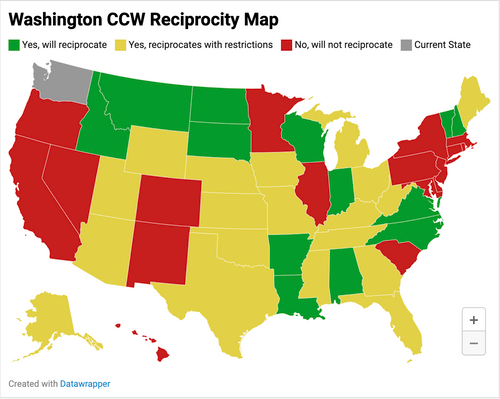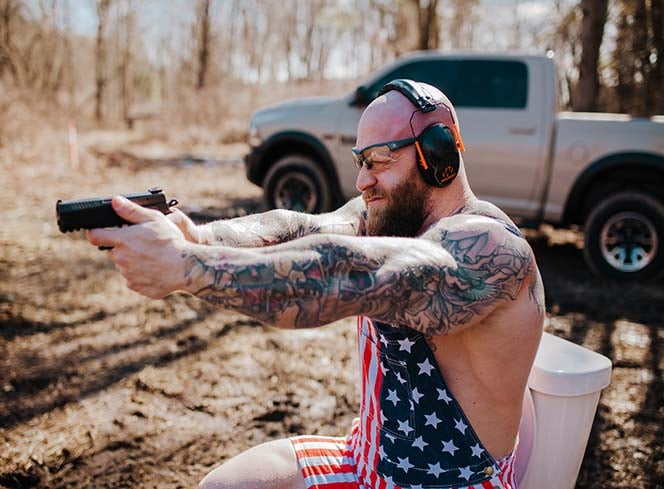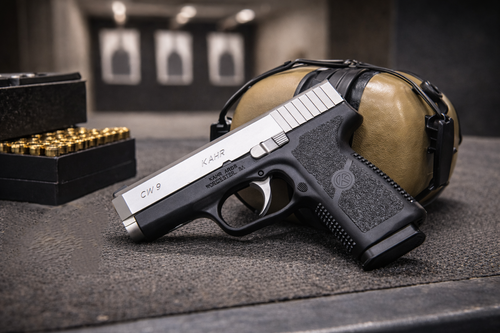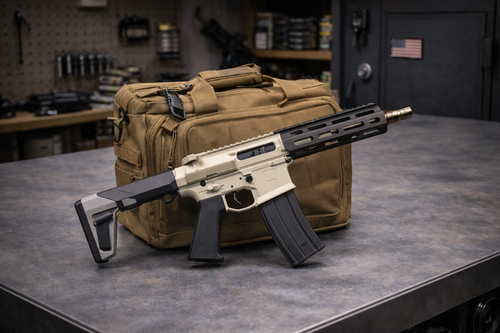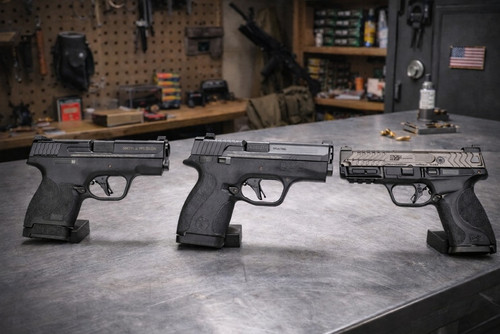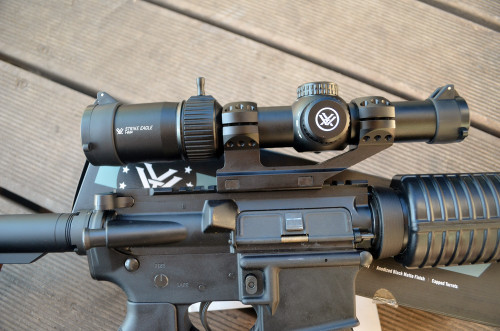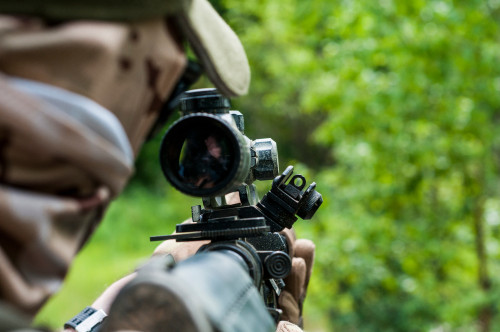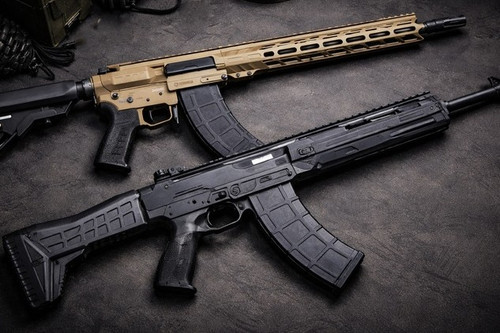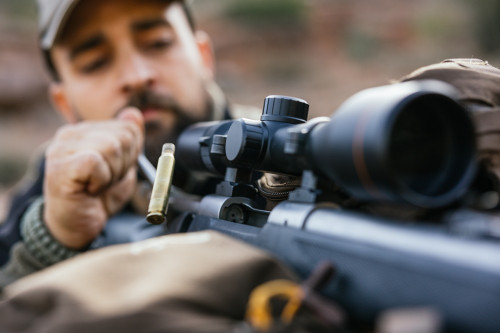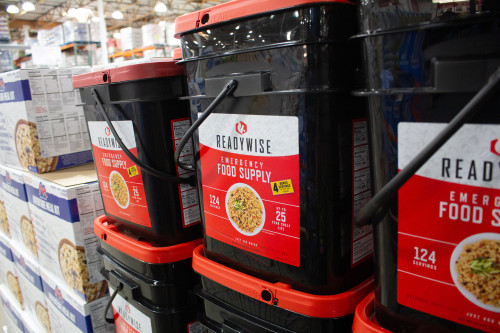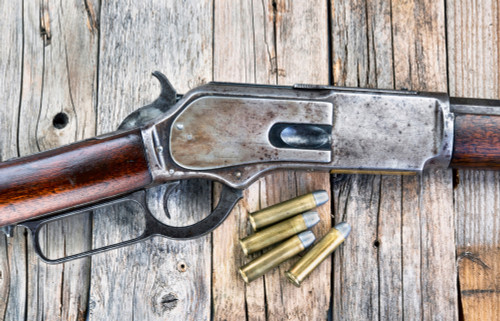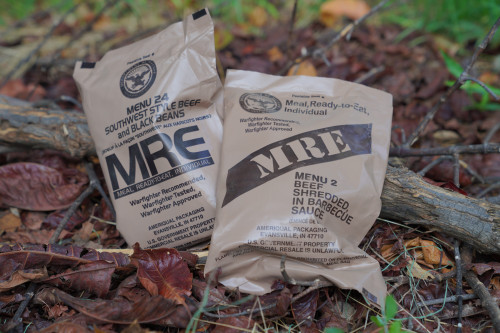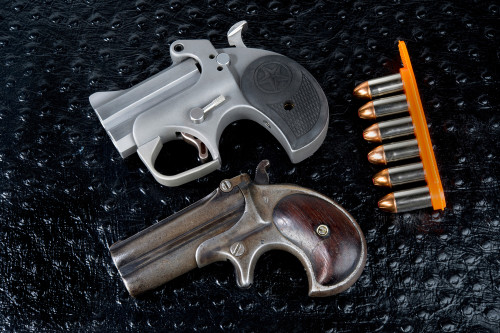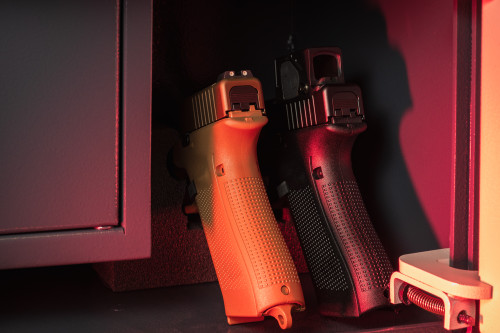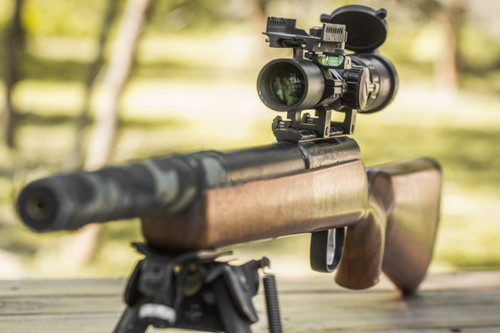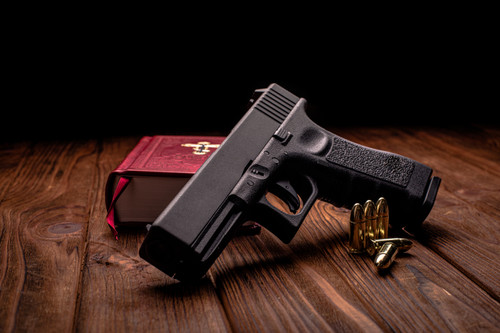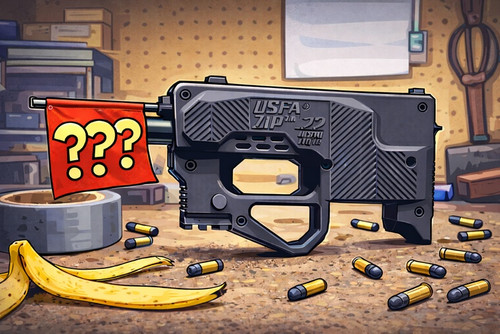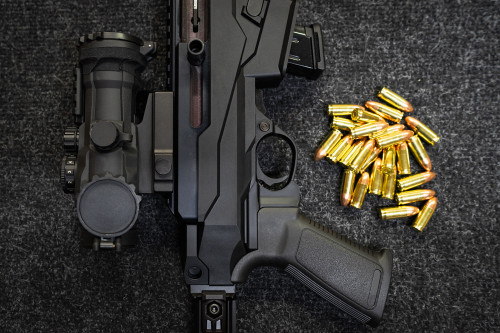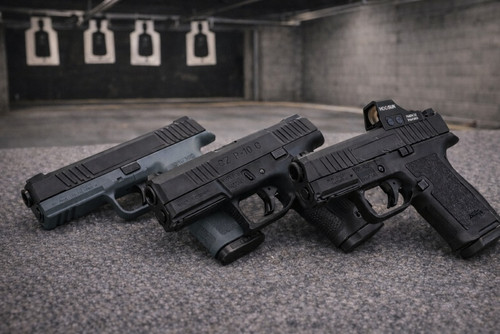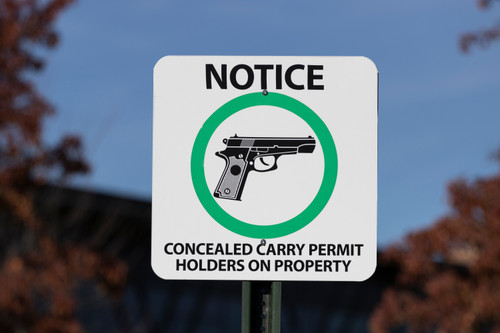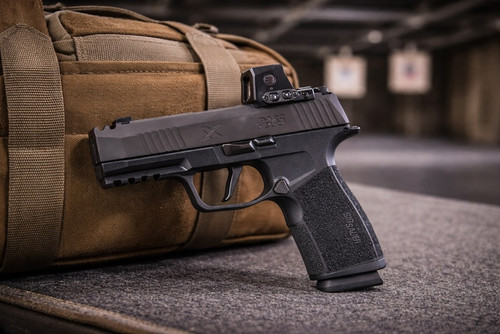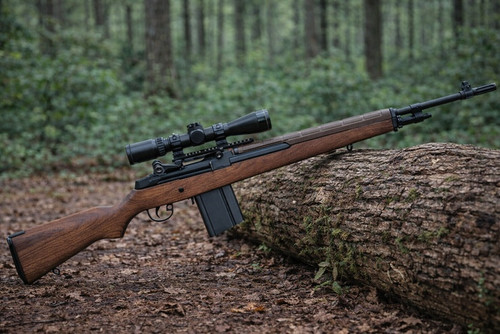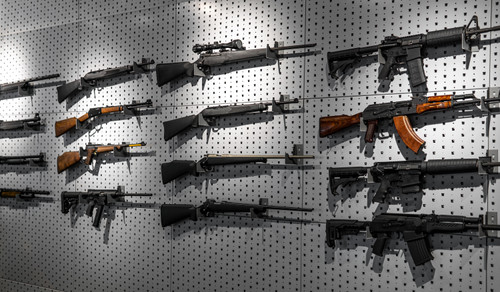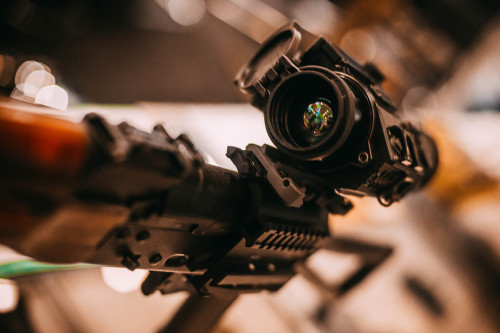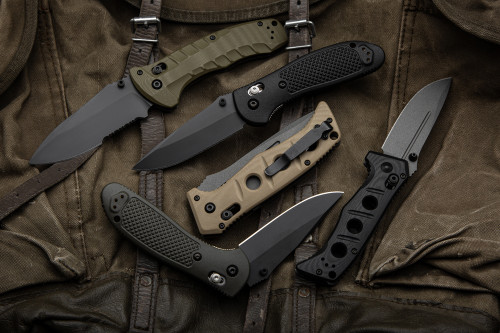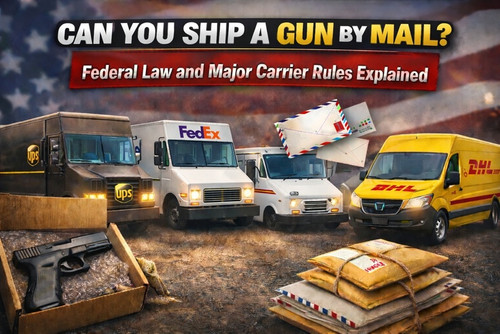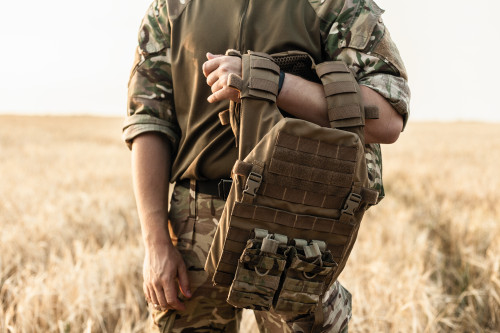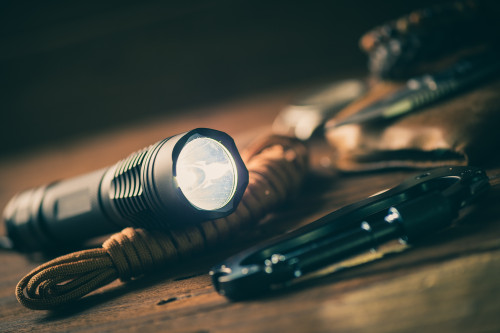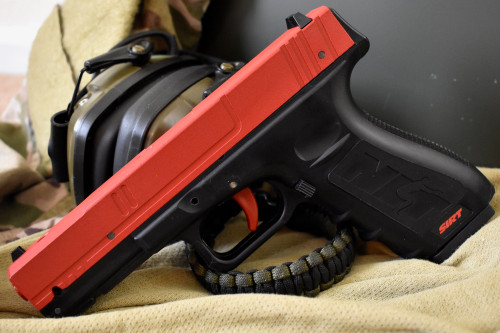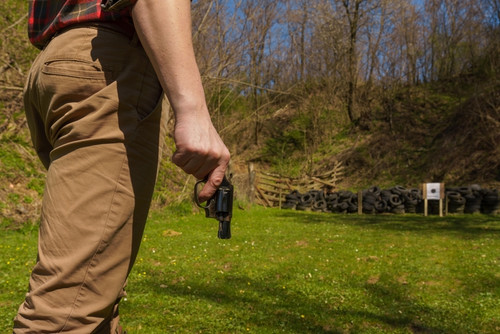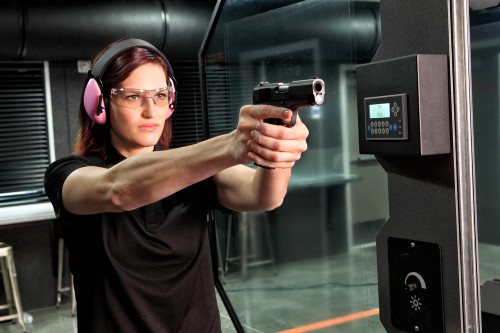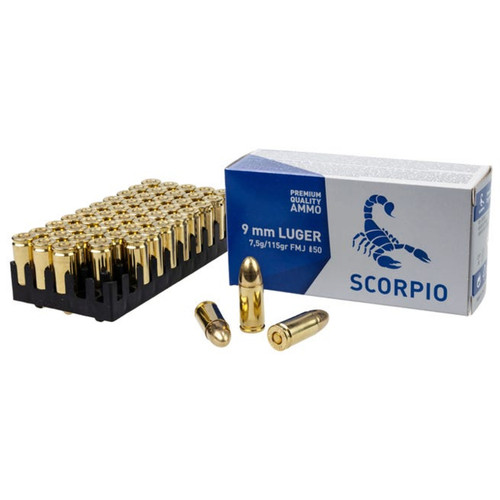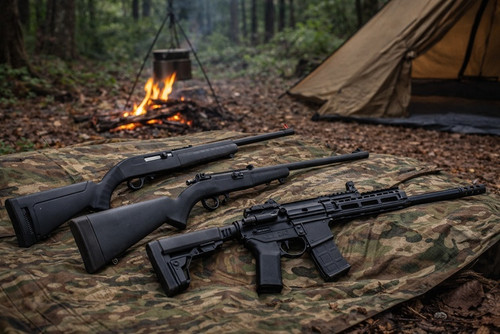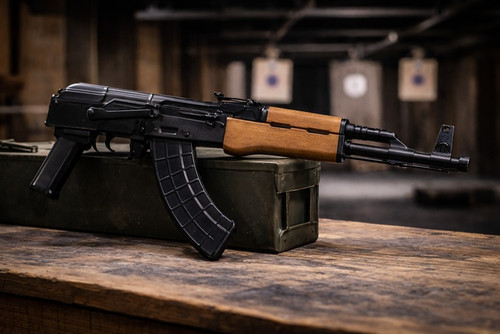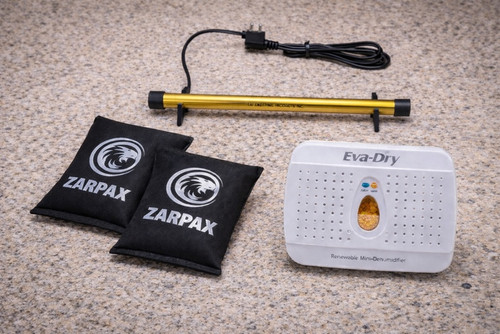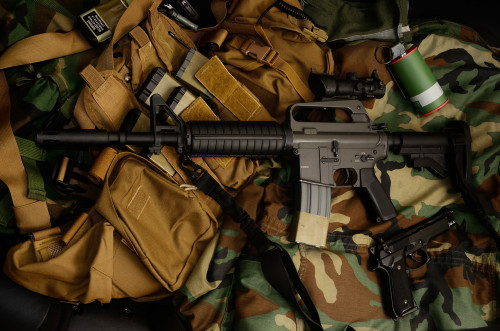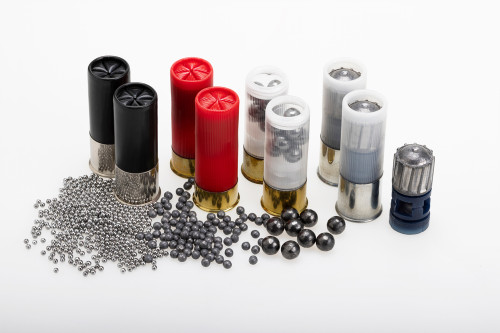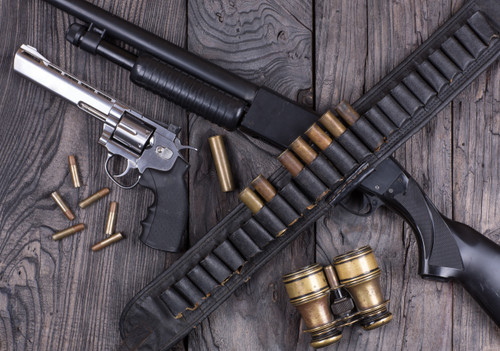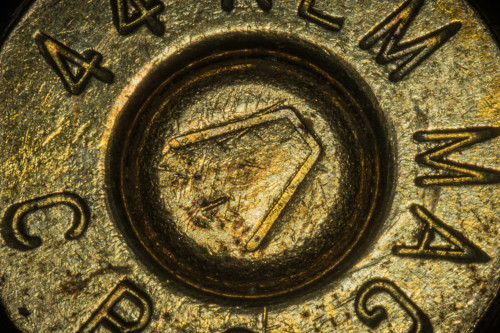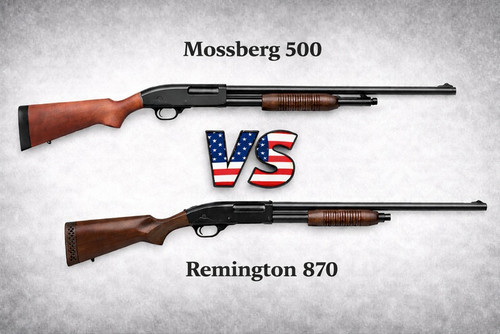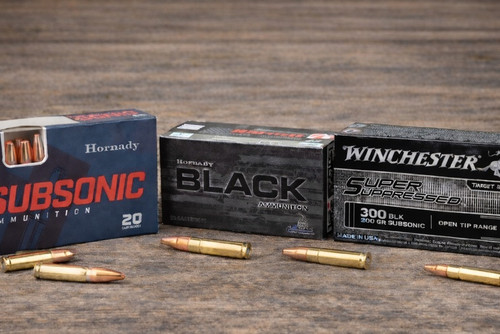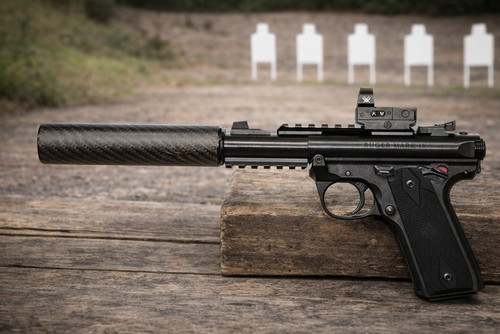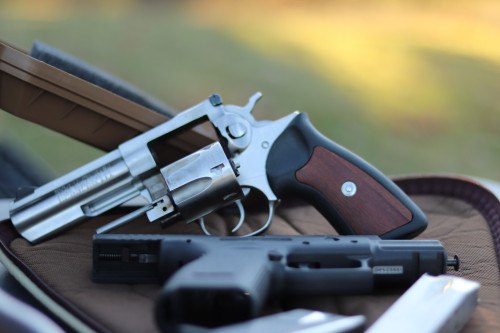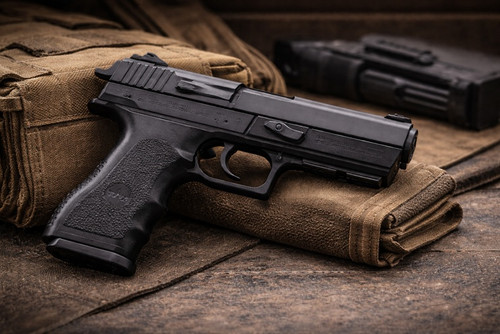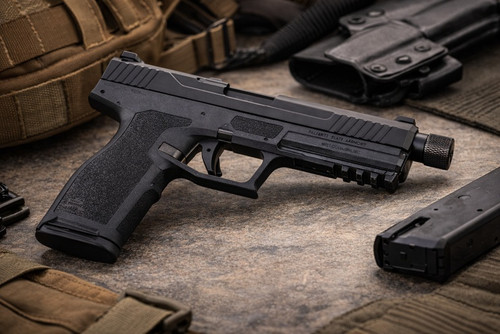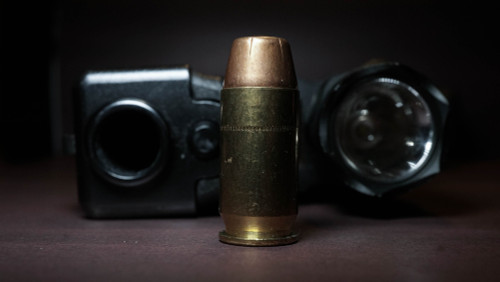Despite being home to some big cities, Washington state is fairly moderate around concealed carry laws — unlike its namesake on the East Coast (Washington D.C.). While you still need to jump through some hoops to carry a concealed firearm, it’s not as difficult as in places like D.C., New York, or California.
In this guide, we’ll cover everything you need to know about concealed carry in Washington, including reciprocity with other states, how to get a license, and specific rules regarding the purchase, carry, and use of a firearm in the “Evergreen State.”
Legal Disclaimer
This article doesn’t constitute legal advice. We’re communicating informally here to make this information easy to grasp without getting lost in legal mumbo jumbo. With that said, it’s the legal mumbo jumbo that may end up deciding your fate in court.
We’ll be as accurate as we can, but for clarification, cross-check the information here with actual laws, which we’ve linked throughout the article. If you have additional questions or concerns, we recommend consulting with a local attorney experienced in self-defense law.
1. Quick Stats
- Number of other state permits honored in Washington: 10
- Number of states that honor Washington permits: 28
- Percentage of people licensed for concealed carry in Washington: 8.4%
- Number of issued licenses in Washington: 652,000
- Minimum age to carry a concealed firearm in Washington: 21
- Washington concealed carry license validity: 5 years
2. Washington Concealed Carry Overview
This section provides an overview of concealed carry laws in Washington.
Carry Type
Washington is not a constitutional carry or permitless carry state. To legally carry a concealed and loaded firearm, you must qualify for and obtain a Washington Concealed Pistol License (CPL) or possess a concealed carry permit from another state recognized by Washington.
However, open carry is allowed for anyone over 21 who can legally possess a firearm. But remember, there is little upside to open carry. Even when it’s legal, you can end up creating more problems than you solve. If you want the responsibility of carrying a gun in public, we recommend obtaining a CPL and carrying concealed.
Issue Type
Washington is a shall-issue state — if you meet the minimum requirements, authorities must issue you a CPL. You do not need to prove you have a special need to carry a gun. If you qualify, you’re good to go.
CPL Details
The CPL is issued by the Washington State Department of Licensing but is processed locally by the police or sheriff’s department in your area. The CPL can be issued to both residents and non-residents. More on the CPL application process in section seven of this article.
To qualify for a CPL, the applicant must be 21 years old, a legal resident of the US, meet certain criminal history requirements, and pass a background check.
Firearms training is not required to obtain a CPL, though it is required for purchasing a handgun. Regardless, we highly recommend seeking expert instruction before carrying a concealed handgun in public. Armed but untrained people are more likely to be part of the problem than the solution.
There is no public registry of CPL holders. However, the CPL is linked to your driver's license, so law enforcement will be aware of your status if they check you in their system.
Revised Code of WA 9.41.070
Preemption
The Washington state government retains preemption rights over all firearm laws. No local government can enact firearm laws that contradict state regulations.
However, there are some narrow exceptions. Local governments may regulate:
- Where firearms may be discharged to ensure public safety
- Firearm possession at stadiums or convention centers
- Firearm possession by municipal employees at work
To be clear, any private property (a hotel, church, etc.) can still prohibit firearms on the premises. Preemption is specifically related to what a local government can and cannot do.
Revised Code of WA 9.41.290
Red Flag Law
Washington has a red flag law, also called an extreme risk protection order, which gives family members or law enforcement the right to petition the court to legally disarm dangerous people for the expressed purpose of preventing imminent catastrophe.
Revised Code of WA 7.94.030
Other Weapons
The Washington CPL exclusively regulates firearm possession and doesn't apply to other concealed weapons.
Tasers, stun guns, and chemical sprays are legal to carry for self-defense and do not require a license. However, you can’t carry stun guns or tasers at schools or associated facilities unless you’re expressly authorized to do so as a teacher, security guard, etc.
Revised Code of WA9.41.280
Magazine Limits
Washington prohibits the possession or sale of large-capacity magazines that hold more than 10 rounds. However, nothing stops you from carrying extra magazines.
WA Senate Bill 5078, Chapter 104
3. Washington Concealed Carry Reciprocity
Every state has different rules and licensing procedures for concealed carry. However, some states either fully or partially recognize the concealed carry permits of other states. Here is how Washington fits into the national concealed carry picture:
State Permits Honored by Washington
Washington has specific criteria for honoring the concealed carry permits of other states. States must:
- Recognize and give effect to concealed pistol licenses issued by Washington
- Not issue concealed pistol licenses or permits to persons under the age of 21
- Require a fingerprint-based background check for criminal and mental health history
Washington honors permits from the following states:
- Idaho (enhanced permit only)
- Kansas (standard license only)
- Louisiana
- Michigan
- Montana (enhanced permit only)
- North Carolina
- North Dakota (class 1 permits only)
- Ohio
- South Dakota (enhanced and gold permits only)
- Utah (regular permits only)
States Fully Honoring Washington CPL
Remember, while your CPL gives you the right to carry concealed in some other states, you still must adhere to the laws of that state. Saying, “This is legal in Washington!” is no excuse for failing to follow the law in Idaho.
These states fully honor the Washington CPL:
- Alabama
- Arkansas
- Idaho
- Indiana
- Louisiana
- Montana
- New Hampshire
- North Carolina
- North Dakota
- South Dakota
- Vermont
- Virginia
- Wisconsin
States Partially Honoring Washington CPL
These states honor the Washington CPL, but with some restrictions that vary by state:
- Alaska
- Arizona
- Florida
- Georgia
- Iowa
- Kansas
- Kentucky
- Maine
- Michigan
- Mississippi
- Missouri
- Nebraska
- Ohio
- Oklahoma
- Tennessee
- Texas
- Utah
- West Virginia
- Wyoming
States Not Honoring Washington CPL
These states do not honor the Washington CPL:
- California
- Colorado
- Connecticut
- Delaware
- District of Columbia
- Hawaii
- Illinois
- Maryland
- Massachusetts
- Minnesota
- Nevada
- New Jersey
- New Mexico
- New York
- Oregon
- Pennsylvania
- Rhode Island
- South Carolina
4. Washington Rules for Buying a Gun
Here is an overview of the rules related to buying a gun in Washington.
Purchase Permit
No purchase permit is required to buy a handgun in Washington. You just need to be 21 years old and legally able to possess a gun.
Background Checks
All handgun purchases require a background check, including private gun sales and transfers. There are a few exceptions to this rule including transfers between family members, transfers to prevent imminent danger, and transfers of antiques.
Background checks can take up to 10 days. For non-residents, people without a Washington ID or driver's license, or those who haven’t lived in the state for the preceding 90 days, the background check can take up to 60 days.
Possessing a CPL does not exempt you from a background check.
Revised Code of WA 9.41.113
Waiting Period
There is no mandatory waiting period for handgun purchases, but the background check process effectively creates a waiting period.
Registration
Technically, handgun registration is not required. However, all handgun sales — even private transactions — must be facilitated by a federally licensed firearm dealer (FFL). All FFLs must report handgun transactions to local law enforcement as well as the State Department of Licensing, creating a de facto database of gun ownership.
Minimum Age for Purchase
You must be at least 21 years old to purchase a handgun in Washington.
Revised Code of WA 9.41.240
Firearms Safety Training
As of January 1, 2024, anyone buying a handgun must have completed a firearm safety training program within the previous five years.
The program must include instruction on the following:
- Basic firearms safety rules
- Children and gun safety
- Suicide prevention
- Gun storage to prevent unauthorized access and use
- Safe handling of firearms
- Firearms laws, including prohibited firearms transfers and locations
- State laws about the use of deadly force for self-defense
- Techniques for avoiding a criminal attack
- Managing violent confrontations, including conflict resolution
Revised Code of WA 9.41.1132
5. Washington Rules for Carrying a Gun
This is an overview of rules and laws related to carrying a firearm in Washington.
Basic Guidelines
Carrying a concealed handgun requires a CPL. If you are carrying your gun, you need to be carrying your CPL card, too.
In this context, “carrying” a gun means having the gun on your person or readily accessible in something like a briefcase or backpack. This also includes having the gun in your vehicle.
Prohibited Carry Locations
While the CPL broadly gives you the right to carry a concealed handgun, there are a variety of locations where concealed carry is still prohibited. These locations include:
- Schools and associated facilities (except picking up or dropping off students)
- Some colleges and universities
- Childcare facilities
- Law enforcement facilities
- Correctional facilities
- Mental health facilities
- Local government facilities
- Election-related sites
- Most facilities related to the judicial process
- Bars and bar areas of restaurants
- Outdoor music festivals
- When riding a snowmobile
- Any place off-limits to people under 21
- Private property with explicit prohibition (hotels, parking lots, churches, etc.)
Revised Code of WA 9.41.280 and 9.41.300
Approved Carry Locations
While not an exhaustive list, these are places CPL holders can carry a concealed handgun in Washington:
- State and national parks
- Roadside rest areas
- Unrestricted areas of the airport
- Restaurants
- Mass transit
- Your property or business
- Your vehicle
- Anywhere else
Duty To Inform Police
In Washington, you do not have a duty to inform police you are carrying a concealed weapon or have a weapon in your car. However, as the concealed carry registry is linked to your driver's license, they will find out soon enough. If they ask for your CPL, you must present it. If they ask if you’re carrying a gun, you must answer truthfully.
As a general note on police interactions, we recommend being polite and cooperative. Police officers have a tough job, so be friendly and comply within reason. If you have a problem with cops, a traffic stop is the wrong time to deliberate the issue. You will lose.
Revised Code of WA 9.41.050
Carrying in Vehicle
To have a loaded gun in your car (or on your person in your car), you must have a CPL. If you leave the gun in your car, it must be locked away in a case and hidden from view.
Without a CPL, you can still transport a gun in your car, but it must be unloaded and locked in an opaque box.
Revised Code of WA 9.41.050
Carrying While Intoxicated
Washington law does not specifically address the issue of carrying while intoxicated.
However, you have a moral and ethical responsibility to maintain your cognitive faculties when carrying a gun. The purpose of that gun is to keep you and the people around you safe, which you can’t do if you’re wasted. If you want to get wasted in public, leave your gun at home and outsource your safety and security to more serious people.
Minimum Age for Carry
You must be 21 years old to carry a gun in public.
Revised Code of WA 9.41.240
6. Washington Rules for Using a Gun
This is an overview of rules and laws related to using a firearm in Washington.
Use of Deadly Force
Deadly force is a physical force that can reasonably be expected to cause death. If you kick someone and they die, this isn’t deadly force because it's unreasonable to assume they would die (you’re probably still in trouble, though). Conversely, if you shoot someone and they survive, you still used deadly force because death was the expected outcome.
In Washington (and pretty much everywhere else), deadly force is reserved for situations where you or someone else are faced with an imminent threat of great bodily harm or death. If the attacker dies as a result, this is called justifiable homicide.
How do you know? The law uses the reasonable person test, which asks whether a theoretically reasonable person in the same situation would behave as you did. Remember, you’ll have to explain your actions to the police and possibly to a jury. They have to be able to agree that, “Yeah, if I was in that situation, I would have done the same thing.”
Even if you’re forced to make a split-second decision, you’ll be held accountable for that choice. The keys to legal and effective self-defense are skill development, scenario planning, and comprehensive knowledge of the law — and avoiding bad situations entirely.
Revised Code of WA 9A.16.050
Excessive Force
You can only use the amount of force necessary to stop the threat. You could do everything right, but then pull that trigger one too many times and cross the line into criminal territory. The line between self-defense and murder is very thin.
Training is the best antidote against the mind-bending stress and insanity of gun combat. The better trained you are, the more likely you will be to restrain yourself when the threat is neutralized.
Duty To Retreat
While there is no specific “ stand your ground” law in the Washington code, legal precedent in the state has consistently upheld the right of citizens to remain in places they are legally allowed to be. This means you do not have a duty to retreat if faced with a threat.
But remember, the reasonable person test still applies. If some psycho runs at you with a machete, most people would ( likely)agree you had no choice but to shoot him. If someone catcalls you or cuts you off in traffic, few will agree that deadly force was the appropriate response.
Castle Doctrine
Washington courts have historically supported the concept of castle doctrine, which is the right to stand your ground in your own home. This means if an intruder persists, you have the right to stop them — with deadly force if necessary.
Again, remember the reasonable person test. If you shoot an armed intruder in your living room, you’re probably in the clear. If you shoot an unarmed intruder in the back (as they’re running away) on your front lawn, you’ll probably have some explaining to do.
Castle doctrine doesn’t apply if the “intruder” has a legal right to be on the property. In other words, you can’t tell your roommate or significant other to go somewhere else, and then start blasting away when they try to come back.
Defense of Property
While there are some cases where you can use force to defend property, Washington basically says you can only use deadly force in defense of a person. You can’t shoot someone who is stealing or breaking your things, no matter how justified you might feel in doing so.
Liability
Washington law clearly states that you cannot be put in legal jeopardy for lawfully exercising your right to self-defense, assuming you defended yourself reasonably. If you’re found not guilty of a crime due to self-defense, the state will reimburse some or all costs related to the legal proceedings.
Revised Code of WA 9A.16.110
Brandishing
Washington law does not specifically mention brandishing. However, if you point a gun at anyone or discharge a gun in public — and it’s not for self-defense or defending others — you’ll be in trouble. You also cannot use a gun (or anything else) to intimidate anyone or coerce them with threats of violence.
Revised Code of WA 9.41.230 and 9.41.270
A Note on Using Your Gun
It’s worth pointing out that the use of deadly force is the crux of the entire issue of concealed carry. Everything else we talk about here could result in fines, misdemeanors, or felonies in rare cases.
Deadly force is an entirely different level of seriousness. What you do in a split second could be the difference between going home to see your family and spending the rest of your life in prison. It might seem cool to carry a gun, but never forget, this is serious business with the highest possible stakes.
7. How To Get a Washington CPL
The following is a step-by-step guide for obtaining a CPL in Washington. Always check the Washington State Department of Licensing official website for the latest requirements and up-to-date information.
The process is effectively the same for residents and non-residents.
Step 1: Determine Eligibility
First, determine if you’re eligible to obtain a CPL. To be eligible, you must:
- Be at least 21 years old
- Possess a valid state driver's license or ID
- Not have a previously revoked CPL
- Not be subject to a court order or injunction concerning the possession of firearms
- Not be awaiting trial, appeal, or sentencing for a felony offense
- Not have an outstanding warrant for your arrest for a felony or misdemeanor
- Not have been ordered to forfeit a firearm within the last 12 months
- Not be a convicted felon
Step 2: Determine Where To Apply
Next, you need to contact your local law enforcement office. Washington CPLs are issued by the Department of Licensing but are processed by your local law enforcement officials.
If you live in an unincorporated area of a county, contact your local sheriff’s office. If you live in a city or town, contact your local police department or county sheriff. For non-residents, contact any local law enforcement agency in the state.
Step 3: Apply for the CPL
Visit the appropriate site in person to complete the application process. You can download and fill out the application beforehand. Bring your valid state driver's license or ID and permanent resident card for resident aliens.
At the law enforcement office, you will complete the application, get fingerprinted, and undergo a background check. Finally, you will pay the fee ($36 plus fingerprint and background check fees), and then you’re done.
Step 4: Wait for Notification of Approval
For Washington residents, the background check will be completed within 30 days of your application date, after which your CPL will be issued.
If you don’t have a Washington driver's license or ID, or if you haven’t been a Washington resident for the previous 90 days, the process can take up to 60 days.
If you have any additional questions, contact the law enforcement office where you applied.
8. Washington CPL Management
Here’s how to manage your CPL once you’re already approved:
Renewal
You are responsible for renewing your CPL every 5 years. The Department of Licensing will send you a renewal reminder, but they can’t renew your license. You must return to your local law enforcement office to process your renewal.
You can renew your license up to 90 days before it expires. The fee is $32 and you won’t need to get new fingerprints. You can also renew up to 90 days after expiration for a $42 fee. After 90 days, you will need to submit a new application.
Some locations allow you to complete this process online. For more details, contact your local law enforcement office.
Name & Address Change
Contact your local law enforcement office. You’ll need to fill out the application form again, but check the “Replacement license” box near the top. Also, be sure to bring proof of your new address. The replacement license will cost $10.
Lost or Stolen Permit
If your CPL is lost or stolen, contact your local law enforcement office as soon as possible. They will instruct you on where to go and what to bring. Requirements vary based on location. The fee for a replacement license is $10.
9. Washington Weapons Laws FAQ
Here are some common questions regarding Washington weapons laws and concealed carry:
Does a CPL exempt you from a background check?
No. Anyone buying a handgun in Washington must undergo a background check, which can take anywhere from 10 to 60 days.
Is there a waiting period for handgun sales?
Technically, no. However, as the required background check can take between 10 and 60 days, a waiting period is created by default.
Can I keep a loaded handgun in my car?
Yes, you can possess a loaded handgun in your car as long as you have a CPL. If you leave the gun in the car, it needs to be secured in a case and hidden from view.
What’s the minimum age to possess a handgun?
21 years old.
Can I open carry?
Yes, open carry is legal in Washington without a permit.
Can I legally carry a knife?
Yes, with some restrictions. You can’t own or possess a switchblade or other spring-bladed knives, and in some big cities (like Seattle), you can’t carry a knife with a blade longer than 3 ½ inches.
Revised Code of WA 9.41.250 and 9.41.270
Can I carry a concealed handgun while bow hunting?
Yes, but you can’t use the handgun to facilitate the hunt by dispatching wounded game. You can only carry it for self-defense purposes.
WA Administrative Code 220-414-070
Do I need a permit to buy a handgun?
No, but you need a CPL to carry it concealed.
Do I need to register my gun?
No, but all gun sales are reported to the state by the FFL facilitating the sale or transfer, effectively registering the gun.
Pro Armory: Your Concealed Carry Gear Supplier
For a West Coast, big-city state, Washington is generally friendly to armed citizens and respectful of our constitutional rights. The application process and fees are simple and reasonable, and the state even recognizes concealed carry permits from ten other states. But while open carry is technically legal in Washington, carry your gun the right thing and get a CPL.
At Pro Armory, we believe concealed carry is your right — but only if you do so as a thoughtful, responsible citizen. Stay prepared with the best tools to help you exercise your right to bear arms and defend yourself. We offer ammo for handguns, rifles, and shotguns — plus a variety of tactical accessories to load out your firearm for any situation.
Want to become a better shooter? Pro Armory also offers online firearms training to enhance your proficiency with your concealed carry weapon. Learn shooting tips, tactical maneuvers, and concealed carry best practices from veterans and other shooting experts — all from your own home. Sign up for our newsletter to be notified when training officially launches.



